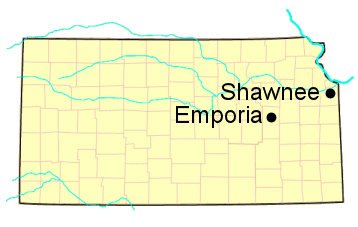| |
SUNDOWNERS
The nurse called it Sundowner’s Syndrome, said mainly the old got it, especially those closest to death, and because I was young, was surprised that at age 21 I was already up and out of bed every evening around ten till six, roaming the halls of the Neurological Ward barefoot, with my hospital gown half-open and my sack of morphine wheeling along behind.
My spine surgery was just two weeks ago. Surgeons removed half of my second vertebrae so they could get a peek at what they at first thought was a lymphatic tumor wrapped around my spinal cord, something which would require radiation as well as chemotherapy after the laser was through. However, once inside, after removing the back half of the vertebrae–(“Won’t I be needing that? I asked the surgeon. “Don’t worry,” he said. “Your muscles will compensate”)–they found the problem to be nothing more than a tight bundle of blood vessels clumped there since my formation. These they scorched out with the laser, sewed me up, and loosened the forceps securing my head and feet. I was told any mistake during the operation might mean paralysis or death. Perhaps this is why throughout the surgery my feet moved incessantly, as on a marathon run. Death can’t claim those moving. Death waits for prey to break for breath, then pounces, snapping the neck with one swipe.
As soon as I could move after surgery, I was on my feet, making slow figure-eighths around the nurses station. Spine surgery, when near the neck, lifts the shoulders, bows the legs, and bottoms the chin parallel to the floor. Locomotion appears mechanical, forced, as if the limbs are pulled by the strings of a marionette puppeteer.
Read More of Sundowners...
Lisa's Flying Electric Piano
Her full-sized electric piano flew out
of my father's pickup truck.
I was driving. Somehow, the base
detached from the keyboard,
and it all went flying into the busy
intersection of 47th and Main.
No one hit it, and Lisa said,
"Let's just throw it into this,
dumpster," when we had carried it
out of the road. "No," I said.
"Let's take it to your new apartment,"
and we did. When I turned it on,
the power eye glowed red,
but it did not play. The Next Day
I found the volume slider,
turned it up, and it played perfectly.
Aside from the scrapes from the road
on its key cover, it was fine.
I practiced tying knots, roping things down,
and I dreamt, at last, of turning corners
slow, and of a keyboard
rising in flight and floating across town,
playing a well-known sonata.
Return to Top of Page |
|
|
| |
Q: Where did you grow up?
A: Shawnee, Kansas. There were more trees and cows there, when I was growing up. Now, there are more big houses. I also lived for a short time at Twin Oaks, a block or so from UMKC in KCMO, while working on my BA in English. I lived for about three years in Manhattan, KS, working on my MA in English and working, for a time, as a reporter for The Junction City Daily Union newspaper. I lived for three years in Lawrence, KS, while working on my PhD, and now I have lived about three years in Emporia, KS, where I now teach. So, most of my life has been lived in Kansas.
Q: Who really inspires you as an author? and, Who did you love to read when you were growing up?
A: I am inspired by many writers, poets, and playwrights. Certain works by a range of poets and writers really get me moving. For instance, Thomas Lux's "Refrigerator, 1957," I think is a both humorous and moving poem, and its rhythms and cadence always do something for me. Kim Addonizio's "The Numbers" also is a favorite. Or, Tim Seibles' "For Brothers Everywhere." Those are some poems by contemporary poets that I return to now and again. However, more locally, William Stafford's poems "Ask Me" and "Traveling Through the Dark" are exquisite, and it I think it is right that they are so highly anthologized. Jonathan Holden's "Western Meadowlark" is also a favorite of mine. It is wry and witty, but also endearing without being precious. And it speaks of the local cry of our state bird in a jazzy way. Amy Fleury's "Always Girl" and "Backroad" are also recent favorites. And Denise Low's "Spring Geese" has been a favorite of mine, and is seasonal, right now. I am currently working on my chops as a jazz poet, and poets who have influenced and inspired me in that category or genre include Langston Hughes, Kerouac, Baraka, Harjo, Mackey, and Kevin Young, among many others. Some of my favorites in the Modern American canon of poetry include the following (not an exhaustive list): Whitman and Dickinson (where it begins), Stevens, Mina Loy, Williams, Pound, Eliot, HD, Moore, Masters, Stein, Frost, Cummings, McKay, Hughes, Tolson, Bennett, Cullen, Millay, Hart Crane, Oppen, Kunitz, Olson, Bishop, Rukeyser, Hayden, Berryman, Stafford, Lowell, Brooks, Duncan, Levertov, O'Hara, Ginsberg, Creeley, Bly, Wright, Ashbery, Kinnell, Merwin, Sexton, Rich, Plath, Snyder, Knight, Baraka, Lorde, Harper, Gluck, Komunyakaa, and Forche. If asked to touch on the work of key poets in the modern period, I would start with this list, I think, although I know I am leaving out many, many important poets.
As for playwrights, currently I'm studying Beckett, but other modern and contemporary playwrights that I have been reading lately include Tennessee Williams, Arthur Miller, Loraine Hansbery, Wole Soyinka, Harold Pinter, Sam Shepard, David Mamet, August Wilson (a jazz connection), Tony Kushner, Paula Vogel, N. Shange, and Charles Fuller. I write plays, as well, and I learn a good deal about creating character and persona from these dual interests, as well as about how to create dialog, in poetry and in playwriting, that is compelling and honest--that asks us to listen, and we oblige.
In terms of prose, you are lucky to have Thomas Averill at Washburn. I am rereading "The Musical Genius of Moscow, Kansas", from Ordinary Genius this week. It is a brilliant short story. I love short stories, and I write them, when I can. But let me move on to modern and contemporary novels. Here are some of my favorites, both past and present:
Bellow: Herzog
Capote: In Cold Blood
Cather: My Antonia
Day: The Last Cattle Drive
DeLillo: White Noise
Ellison: Invisible Man
Faulkner: Light in August
Fitzgerald: The Great Gatsby
Hemingway: Farewell to Arms
Hurston: Their Eyes Were Watching God
Kerouac: On the Road
Kingston: Tripmaster Monkey: His Fake Book
London: The Call of the Wild
McInerney: Bright Lights, Big City
Morrison: Beloved
Pynchon: The Crying of Lot 49
Roth: Goodbye, Columbus; Zuckerman Bound
Silko: Ceremony
Wright: Native Son
For part two of your question, I started reading as much of the above lists
as a kid, when I could. My mother was a journalist, and is an avid reader. By her bedside, there is always a big stack of books from the library. She encouraged us to learn as much as we could, and she took us to the library frequently. She started my sister and I on the path, and we are still walking it today.
Q: When did you discover that you were a writer/poet?
As a little boy, I wrote a lot. I also drew. In middle school, I drew cartoons with dialogue during class. One day, I tried to woo a girl with one, and it didn't work. I quickly switched to writing poetry. Perhaps that is when it happened, when I understood that writing could change things. It could change my life. I might actually go on a date.
Q: Is there one piece of advice that you could give to those who are aspiring to be writers?
A: Read a lot. Write as often as you can. Go inward. Work to understand and change yourself for the better. Also, be observant. Find out what the world around you is up to.Find or make your place within it. Dream big.
Q: What about Kansas inspires you in your writing?
A: My parents are from the Lucas/Lurray area, which is rich in local color.
Also, it is an area that has a reverence to the plains that I have inherited. People are different here. We love each other and the land in a distinct way. We believe in hard work. We don't complain. We don't mind working in the dirt. In fact, many of us enjoy it. We look in any direction, and we can see the gradiations of sky. We can almost see the curvature of the earth. Those open spaces embrace big dreams, I think. I am lucky to live here.
Q: I understand that you are a musician. Is there anything about being a musician that helps you to write certain kinds of internal rhyme into you're poetry, and conversely is there anything in your poetry that helps you to write music?
A: I have tried to quit music to write, and to quit writing in order to play better. Neither worked. For me, the two go together. If I can't get a poem right, I go to the drums. I bang it out there. I wait for the beauty of song to play itself over the drums and cymbals. Then, I have the feel of it. The words will come. Perhaps that is an entrance into my process. Also, I listen to a lot of music, most of it over and over. I've listened to John Coltrane's Giant Steps and Coltrane's Sound albums in excess of 100 times, and although I sing poorly, I can sing the melody of any tune on these albums, and some of the solos. There is a richness there, a variety, a build and release that you just don't get in all music, especially a lot of popular music. That can influence any art, including writing. And the lore and the rhythms and melodies, they too help. As for the lore, it is like the lore of any organization. Some people follow baseball. I follow jazz. But I wax and wane on how I follow. Often, I'd rather learn a great deal about one musician, or about one tune, or about one musical passage, rather than go for the broad strokes of a long lineage. Through this attention to the maller details, I think I come to find something deeper, something I can use over the years, as I learn that passage and its intricacies, as I learn many ways of playing that one tune, as I grow and come to internalize what is there. It becomes me, and I become it. And I hope then to pass it on, revealing and performing its many facets and intricacies faithfully. We can all grow in this way. Memorizing poems is one way to start, for writers. It is much the same thing.
Return to Top of Page |
|

![]() Return to Emporia
Return to Emporia![]() Return to KANSAS MAP
Return to KANSAS MAP 


